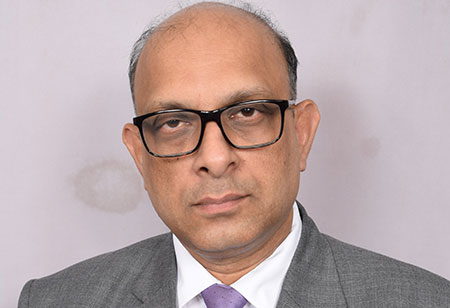By Dr. K. Joseph Thomas, Director - Wealth Management, IndiaNivesh Securities

Dr. K. Joseph Thomas, Director - Wealth Management, IndiaNivesh Securities
Comprehensive Wealth Management (CWM), as a prominent feature of the financial and investment advisory business is quite a recent trend. In the past it remained in a more simple form of investment advisory. Compared to investment advisory, CWM is a more comprehensive function and it is highly inclusive of a number of value added services. As wealth management evolved over the last one decade or so, it continues to acquire more complex nature, in terms of the processes, offerings and the product profiles.
CWM has become more and more focused on specific investor needs and requirements. A very familiar target group would be smaller enterprises and promoter-driven companies. There are a large number of such smaller enterprises in India which are in the transformational stage of their development into formal business entities. They would be looking for professional help in managing their finances as well as their investments, and their wealth. This would involve everything a business family would require from investment planning to tax planning and to estate planning and will-writing. The consultant needs to work with then family or the family business closely. Family offices have come up and they are a challenge to the existing advisory structure to a limited extent. Another development which is of consequence to the advisory business is the emergence of online platforms. While these developments threaten the current position they may not be of much importance as far as wealth consulting is concerned.
CWM acquires greater importance in the coming days due to a number of factors. These factors are actually the presence of economies without growth, higher volatility in the financial markets, major businesses fading away in importance, lack of clarity on secular trends and the emergence of a new entrepreneurial culture in the emerging markets etc. to name a few. These things would demand more attention to sustained wealth creation, in the absence of which, there could be erosion of value on portfolios let alone the wealth creation aspect.
The future of CWM business looks stable and also growing quite fast, at much faster pace compared to the previous years, because of the economic realities that are likely to emerge in the coming years, mainly, rise in incomes of the people mainly in the new markets like China and India. There is expected to be significant growth in GDP, and therefore, of corporate earnings, and this will trigger an enormous expansion of market capitalization. This in turn creates wealth for the people and will act as an aid to more high net worth individuals emerging from among the current set of investors.
CWM can come in or be involved wherever there is money to be managed whether it is short term or for long term, the key to his presence in the scheme of things would be the clear value that he adds from time to time to the management of wealth and assets. The efficacy of this management would determine the benefits that would accrue to the clients, and thereby the success of the business itself.
Most of the time, sophisticated wealth managers work on the basis of financial models and model portfolios. Consulting support and advisory support which they provide is based on these model portfolios which have gone through many years of practical application in client advisory and good amount of back testing too. But there are very few wealth managers who have such scientific models which they use in client advisory, and it obviously is a superior form of investment engagement. Such models facilitate even day-to-day liquidity management in a more efficient and scientific way and would be of particular interest to corporate treasuries and institutions as well. The main mark of a serious wealth manager is the tools that he uses in his work like the model portfolios.
In addition to all this, wealth management needs to be scientifically organized in terms of the resources for the client engagement to be effective. This includes not only skilled human resources, but also information systems. This would entail a reasonably high level of usage of technology in the activities. Apart from the quality of resources, the manager should focus on the deliverables that he has to make available to the persons and institutions that he is advising – the essential ingredients are research deliverables, advisory deliverables and other customer-centric deliverables like a zero error back office and customer service mechanism. Organized comprehensive wealth management stands for responsible management of assets and generation of optimum results on techniques employed and the funds deployed, and it has a place in management of individual as well as institutional wealth. As CWM emerges stronger the entire landscape of advisory may also gradually undergo changes by which the orientation of advisory and investment management would also acquire new moorings.
We use cookies to ensure you get the best experience on our website. Read more...